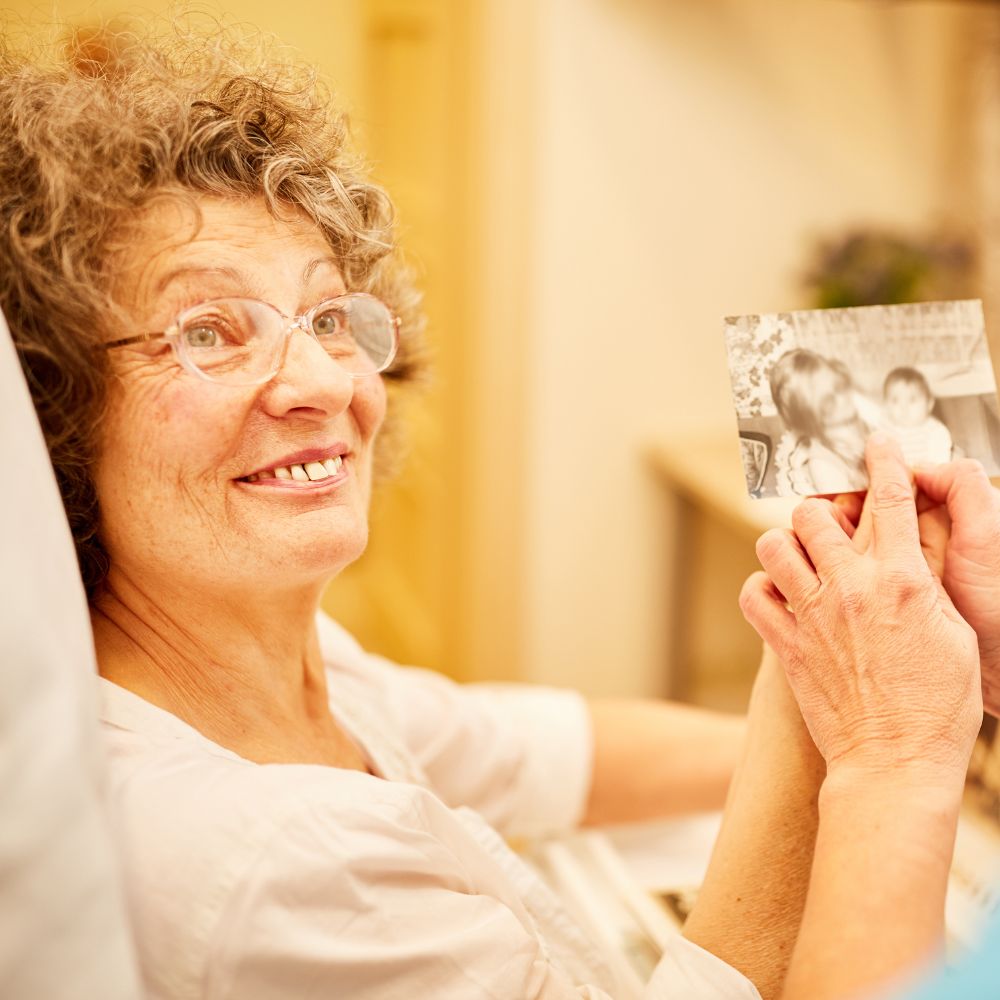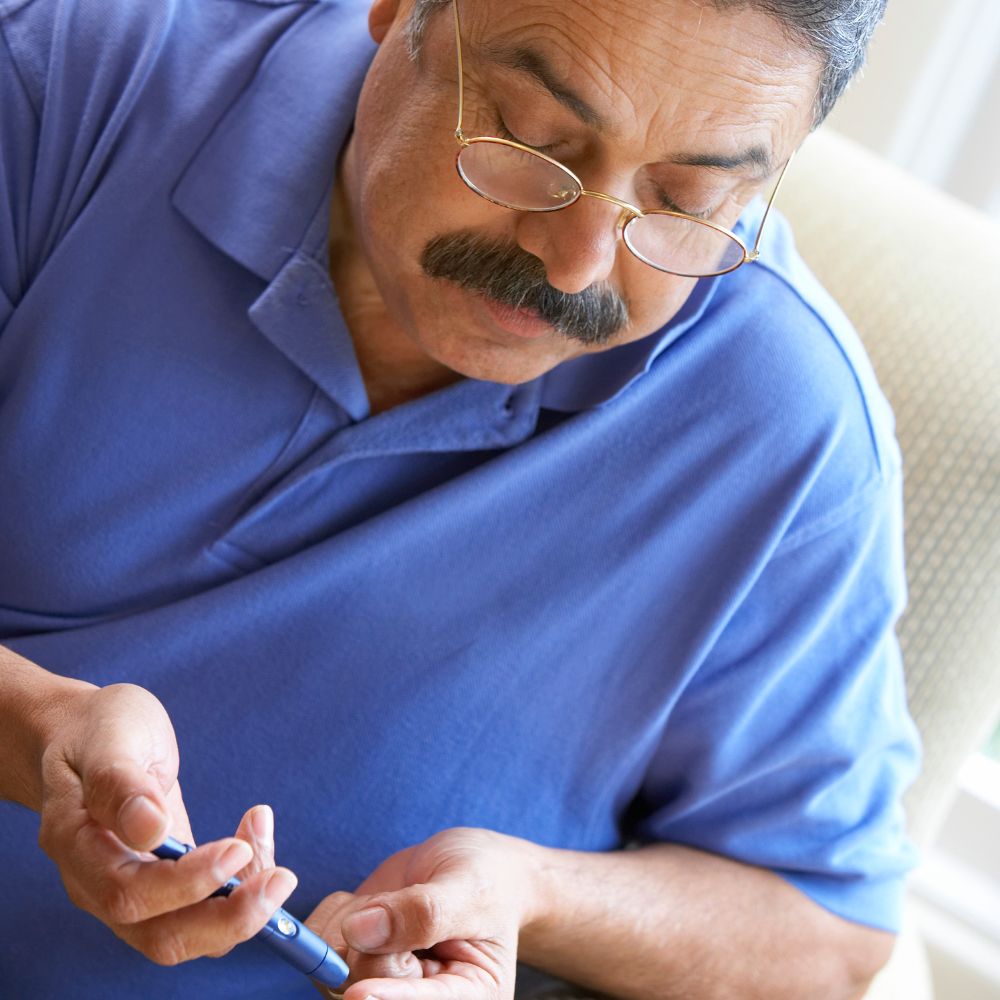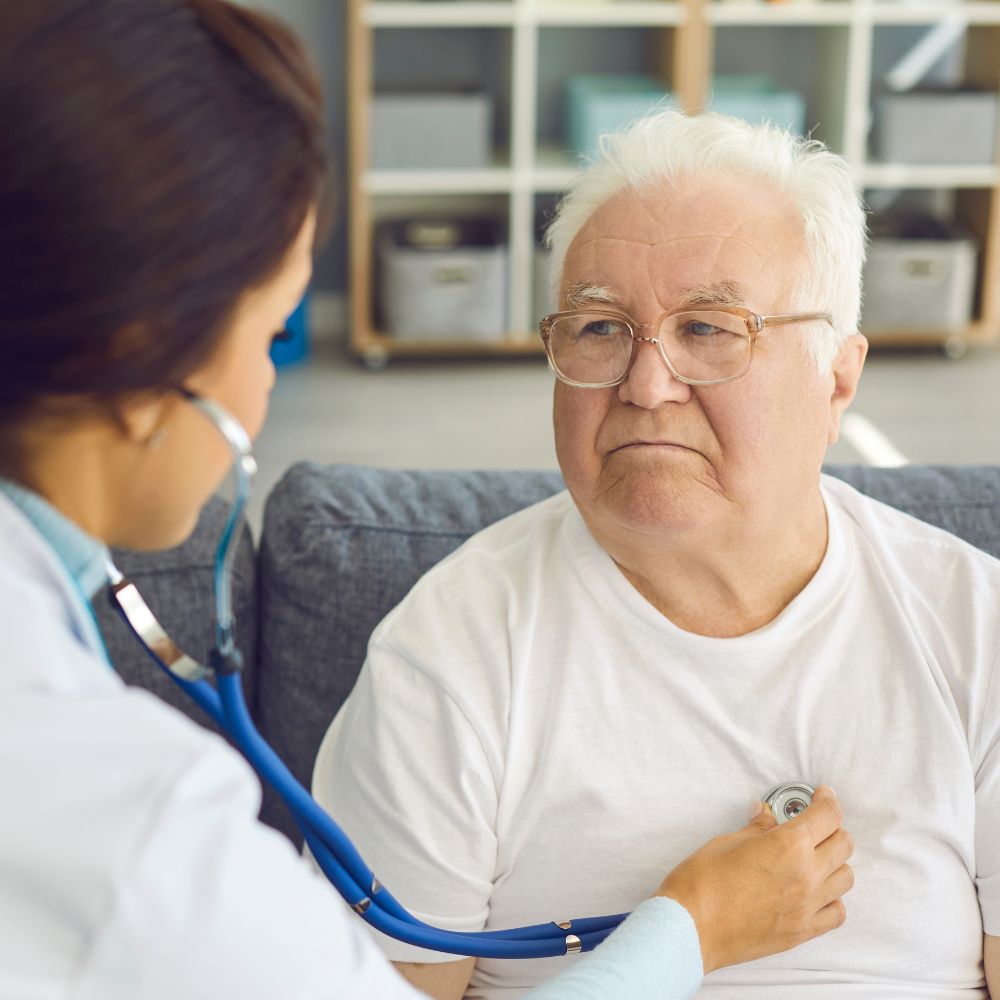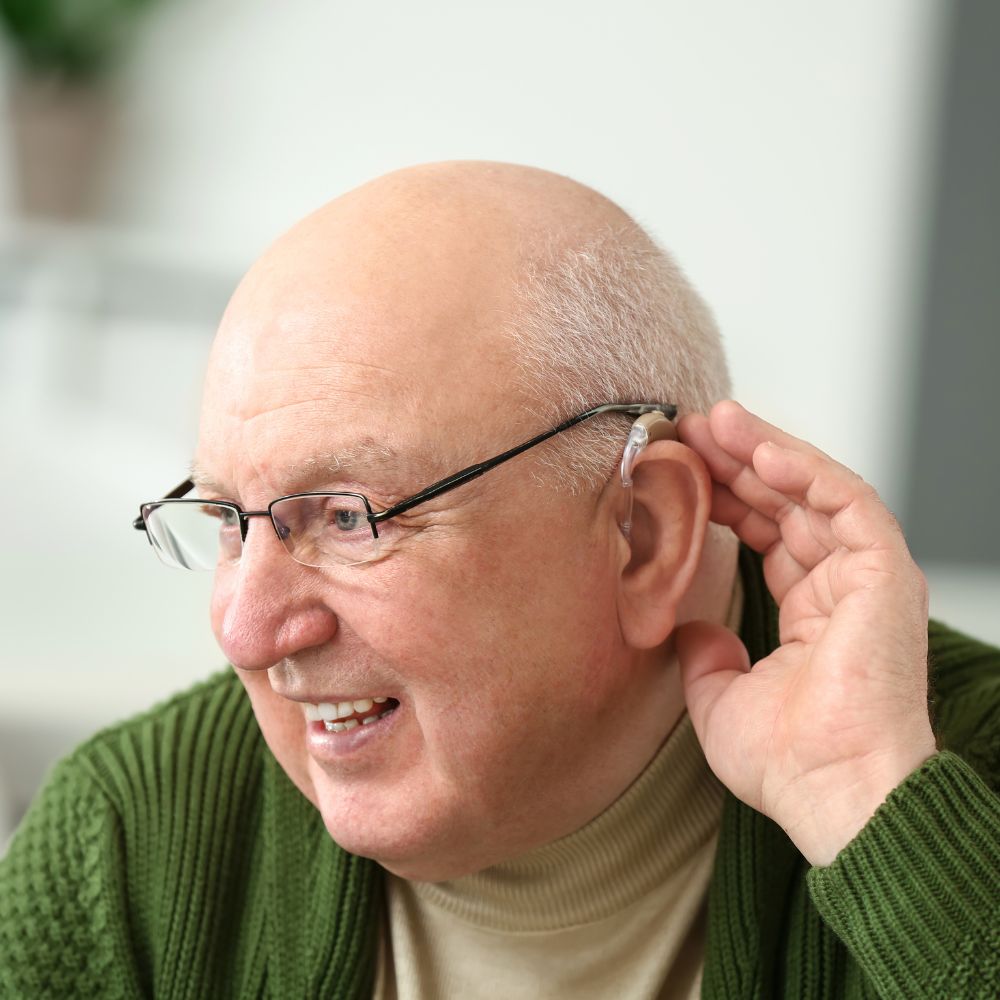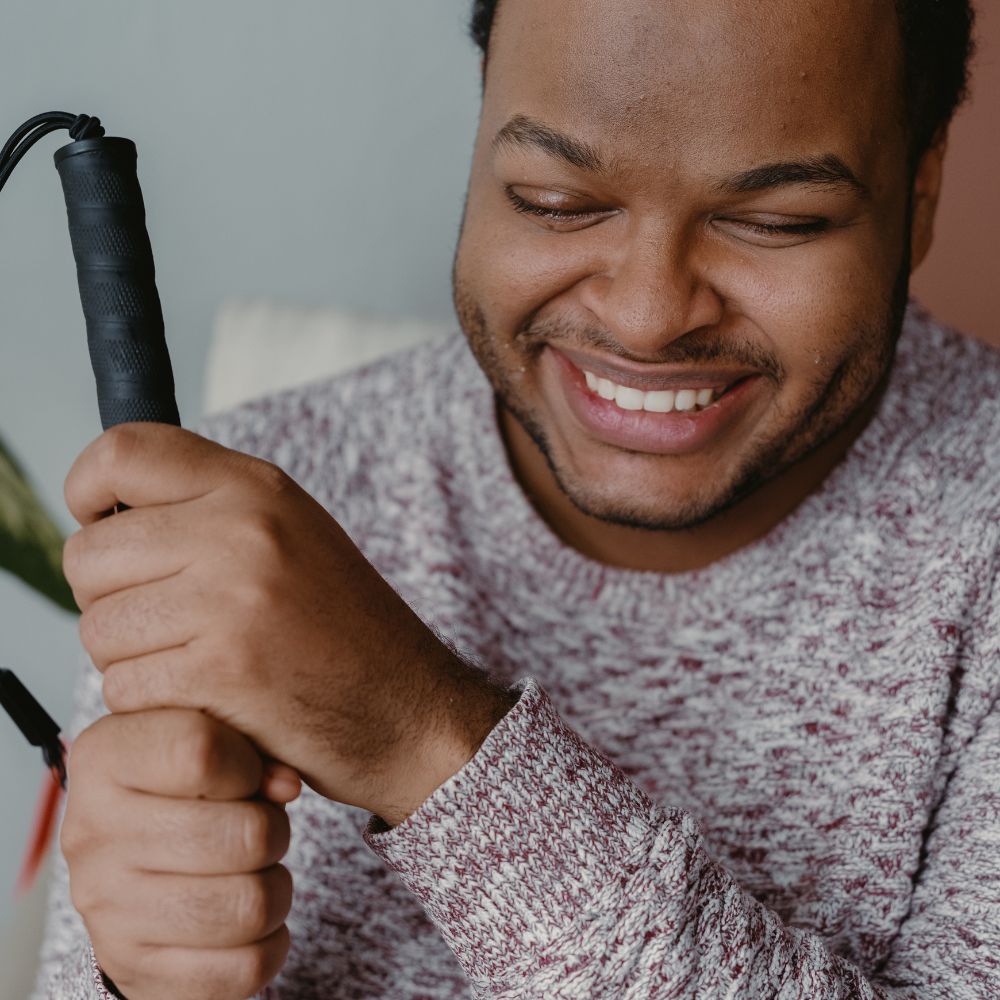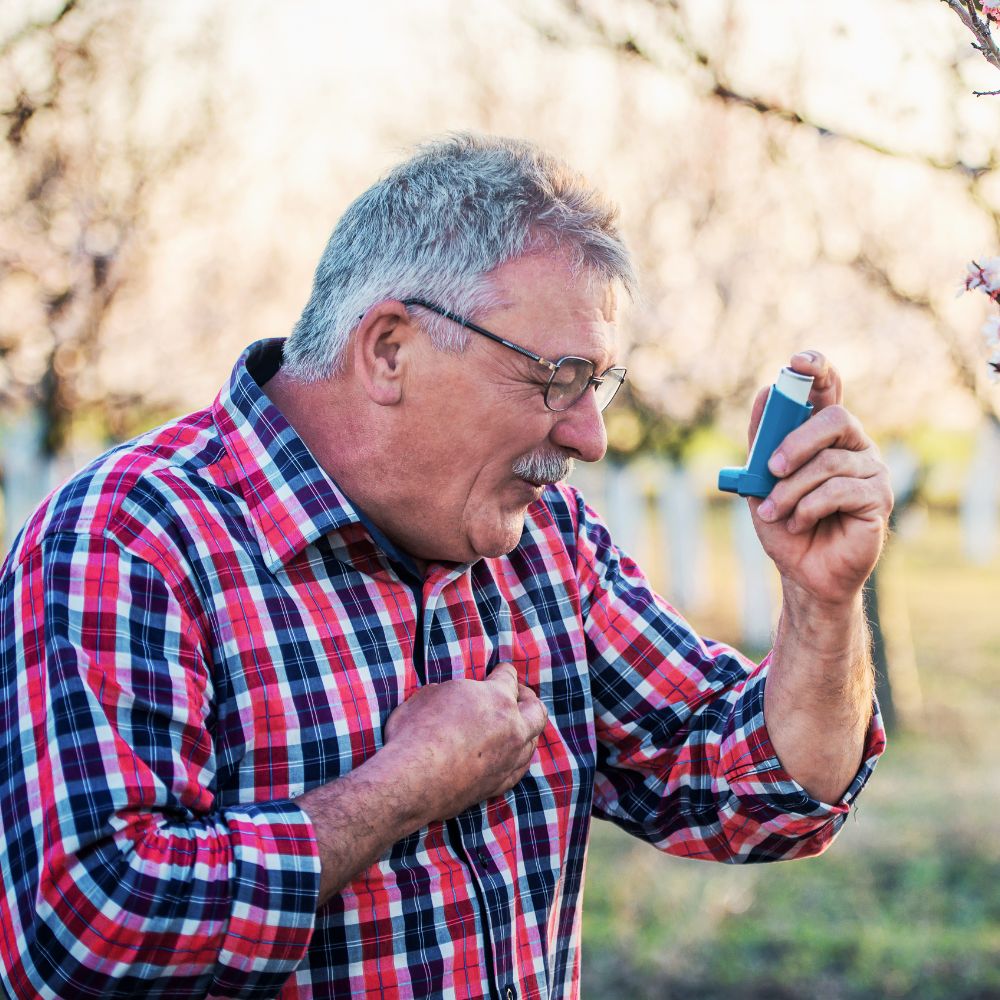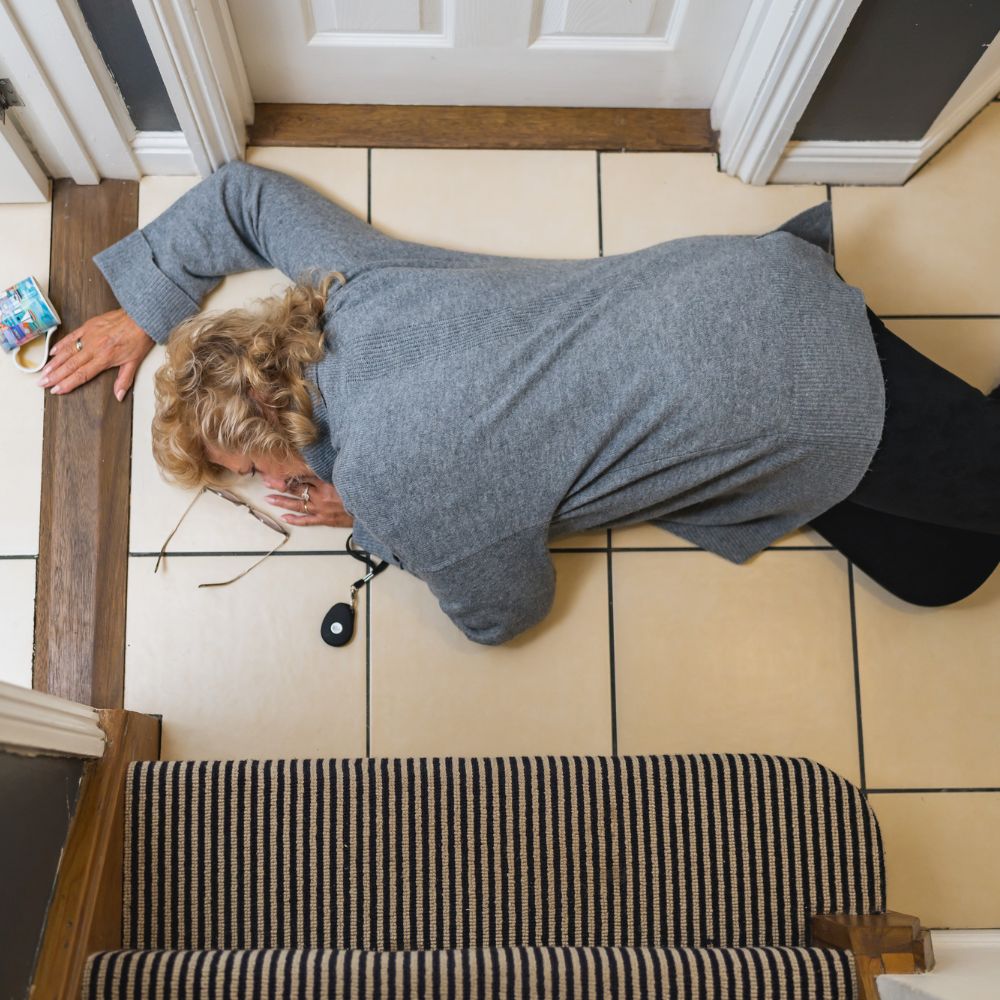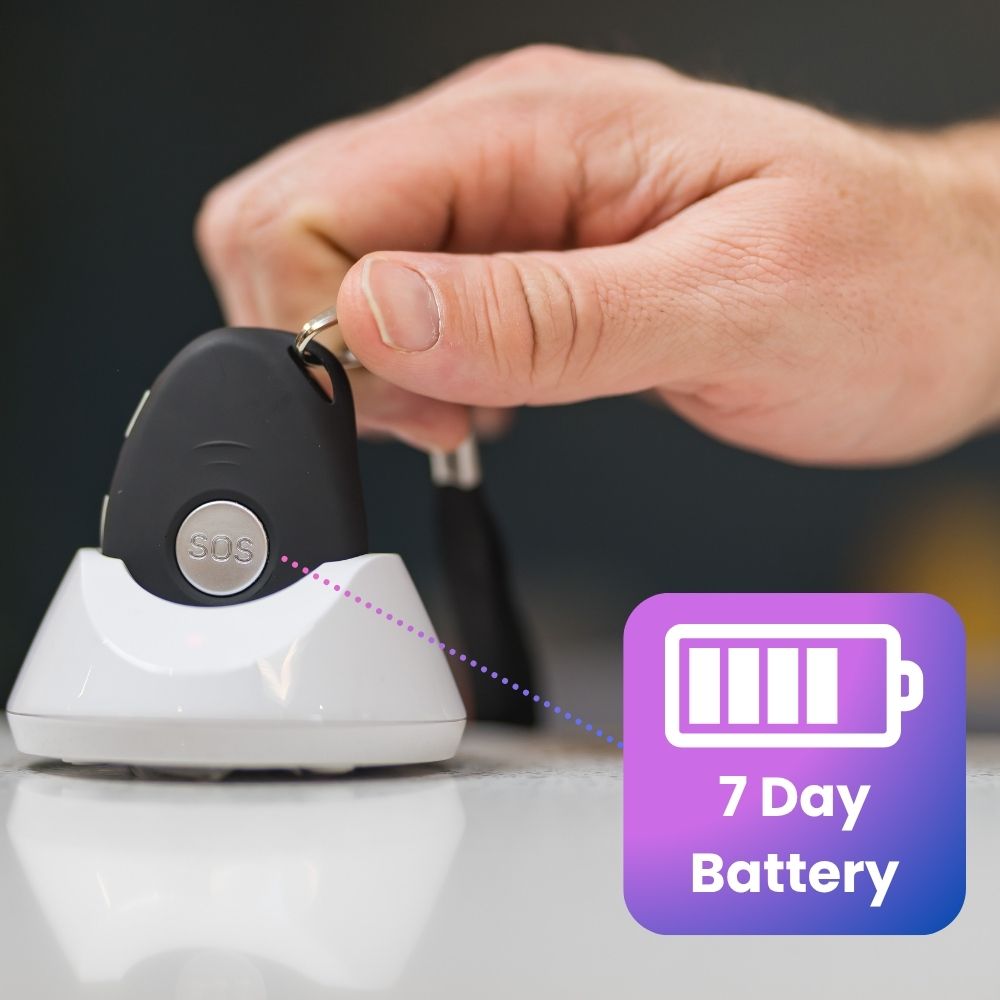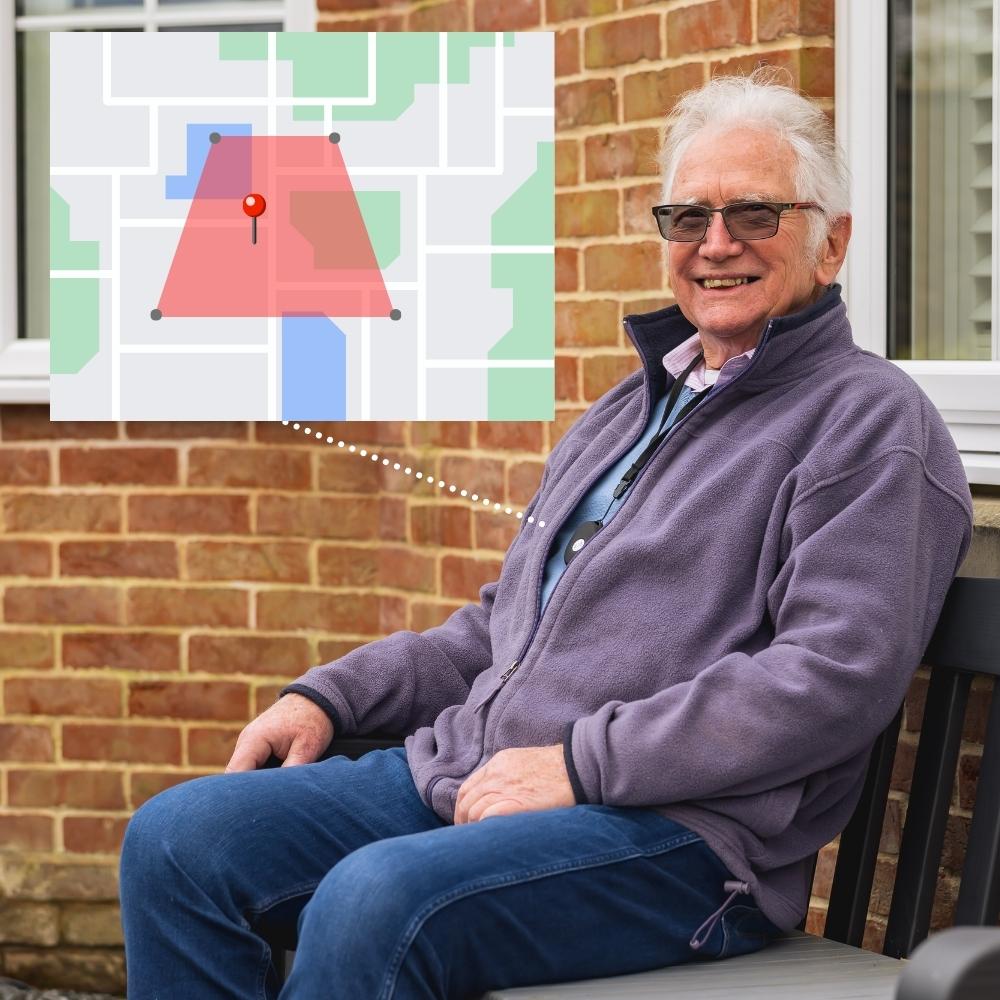Installation you can trust
Installation you can trust
Approved by Which? Trusted Traders
We’re proud that our alarm installation service has been checked and endorsed by Which? Trusted Traders. That means when one of our trained team members sets up your personal alarm or key safe, you can expect a high standard of care, safety, and professionalism.
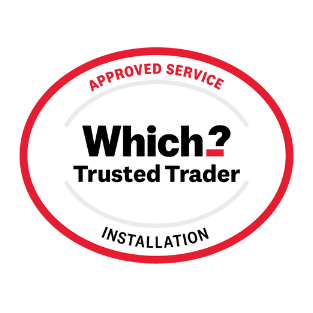
How it works

A Sudden Fall. A Button for Help.
Mum is in the kitchen. She slips. She presses her HelpAlert alarm. In seconds, our UK care team answers. A calm, trained voice asks what happened and gets help moving right away.

No Button Needed. The Alarm Knows.
If Mum cannot press the button, the fall alarm can tell she has fallen. It connects right away. Even if she cannot talk, help is already sent.

You Get the Call Too.
We phone you, a neighbour, or a family friend. You know what’s happening. You are part of the help.

If It’s an Emergency, We Act Fast.
If it’s very serious, we call 999. We stay on the line with Mum. Calm and caring. We do not hang up until help is with her.
Every Press Connects to Real Help
From fall alerts to family calls – here’s how we keep you safe

Reassurance for Families
Know what's happening — even if you’re not there.
When your loved one presses the HelpAlert button (or a fall is detected), we contact you straight away. You’ll know what happened, what we’re doing, and what support they need.
You don’t have to guess. You’re kept in the loop from the start.
- Family updates via phone
- Reassurance in real time
- No app or complicated setup required

Automatic Fall Detection
If your loved one has a hard fall and can’t press the button, the alarm’s fall detection feature will call us on its own. One of our UK team members will talk to them through the device, check if they’re okay, and get help. If it’s serious or no one can come, we’ll call an ambulance and stay on the line until help arrives.
- Works even if they can’t press the button
- Trained responders available 24/7
- Calm support throughout the incident

Who to contact
When the alarm goes off, our team speaks to your loved one and finds out what help they need. We then call the first contact on the list – usually a family member, friend, or neighbour. If no one can attend or it’s an emergency, we call 999 and stay on the line until help arrives.
- You choose who we contact first
- Family, friends, or emergency services
- Support every step of the way
Go Pendant
-
GPS built in, so your location can be found quickly wherever you are, keeping you safe at home or on the go.
-
Shower-proof design, so you can wear it in the shower without worry, staying safe every day.
-
Lightweight at just 35g, ensuring it can be worn comfortably all day without any strain.
-
24/7 UK Control Room, trained operators answer immediately, day or night, whenever you need help.
Go Watch
-
GPS built in, so your location can be found quickly wherever you are, keeping you safe at home or on the go.
-
Lightweight at just 65g, ensuring it can be worn comfortably all day without any strain.
-
Shower-proof design, so you can wear it in the shower without worry, staying safe every day.
-
Lifetime warranty and repair, giving you lasting cover and peace of mind.
Home Lifeline
-
Automatic Fall Detection included, the alarm calls for help if it senses a serious fall.
-
Shower-proof design, so you can wear it in the shower without worry, staying safe every day.
-
A robust battery, lasting up to 2 years with the Lifeline alarm.
-
24/7 UK Control Room, trained operators answer immediately, day or night, whenever you need help.
Go Watch Plus
-
Automatic Fall Detection included, the alarm calls for help if it senses a serious fall.
-
GPS built in, so your location can be found quickly wherever you are, keeping you safe at home or on the go.
-
Lightweight at just 65g, ensuring it can be worn comfortably all day without any strain.
-
Shower-proof design, so you can wear it in the shower without worry, staying safe every day.
-
24/7 UK Control Room, trained operators answer immediately, day or night, whenever you need help.
Go Pendant Plus
-
Automatic Fall Detection included, the alarm calls for help if it senses a serious fall.
-
GPS built in, so your location can be found quickly wherever you are, keeping you safe at home or on the go.
-
Lightweight at just 35g, ensuring it can be worn comfortably all day without any strain.
-
24/7 UK Control Room, trained operators answer immediately, day or night, whenever you need help.
Home lifeline Plus
-
Automatic Fall Detection included, the alarm calls for help if it senses a serious fall.
-
Shower-proof design, so you can wear it in the shower without worry, staying safe every day.
-
A robust battery, lasting up to 2 years with the Lifeline alarm.
-
24/7 UK Control Room, trained operators answer immediately, day or night, whenever you need help.
Go Watch Plus
-
Automatic Fall Detection included, the alarm calls for help if it senses a serious fall.
-
GPS built in, so your location can be found quickly wherever you are, keeping you safe at home or on the go.
-
Lightweight at just 65g, ensuring it can be worn comfortably all day without any strain.
-
Shower-proof design, so you can wear it in the shower without worry, staying safe every day.
-
24/7 UK Control Room, trained operators answer immediately, day or night, whenever you need help.
Home lifeline Plus
-
Automatic Fall Detection included, the alarm calls for help if it senses a serious fall.
-
Shower-proof design, so you can wear it in the shower without worry, staying safe every day.
-
A robust battery, lasting up to 2 years with the Lifeline alarm.
-
24/7 UK Control Room, trained operators answer immediately, day or night, whenever you need help.
Go Pendant
-
GPS built in, so your location can be found quickly wherever you are, keeping you safe at home or on the go.
-
Shower-proof design, so you can wear it in the shower without worry, staying safe every day.
-
Lightweight at just 35g, ensuring it can be worn comfortably all day without any strain.
-
24/7 UK Control Room, trained operators answer immediately, day or night, whenever you need help.
Go Watch
-
GPS built in, so your location can be found quickly wherever you are, keeping you safe at home or on the go.
-
Lightweight at just 65g, ensuring it can be worn comfortably all day without any strain.
-
Shower-proof design, so you can wear it in the shower without worry, staying safe every day.
-
Lifetime warranty and repair, giving you lasting cover and peace of mind.
Go Pendant
-
GPS built in, so your location can be found quickly wherever you are, keeping you safe at home or on the go.
-
Shower-proof design, so you can wear it in the shower without worry, staying safe every day.
-
Lightweight at just 35g, ensuring it can be worn comfortably all day without any strain.
-
24/7 UK Control Room, trained operators answer immediately, day or night, whenever you need help.
Go Watch
-
GPS built in, so your location can be found quickly wherever you are, keeping you safe at home or on the go.
-
Lightweight at just 65g, ensuring it can be worn comfortably all day without any strain.
-
Shower-proof design, so you can wear it in the shower without worry, staying safe every day.
-
Lifetime warranty and repair, giving you lasting cover and peace of mind.
Home lifeline Plus
-
Automatic Fall Detection included, the alarm calls for help if it senses a serious fall.
-
Shower-proof design, so you can wear it in the shower without worry, staying safe every day.
-
A robust battery, lasting up to 2 years with the Lifeline alarm.
-
24/7 UK Control Room, trained operators answer immediately, day or night, whenever you need help.
Go Pendant Plus
-
Automatic Fall Detection included, the alarm calls for help if it senses a serious fall.
-
GPS built in, so your location can be found quickly wherever you are, keeping you safe at home or on the go.
-
Lightweight at just 35g, ensuring it can be worn comfortably all day without any strain.
-
24/7 UK Control Room, trained operators answer immediately, day or night, whenever you need help.
Go Watch Plus
-
Automatic Fall Detection included, the alarm calls for help if it senses a serious fall.
-
GPS built in, so your location can be found quickly wherever you are, keeping you safe at home or on the go.
-
Lightweight at just 65g, ensuring it can be worn comfortably all day without any strain.
-
Shower-proof design, so you can wear it in the shower without worry, staying safe every day.
-
24/7 UK Control Room, trained operators answer immediately, day or night, whenever you need help.
Go Pendant Plus
-
Automatic Fall Detection included, the alarm calls for help if it senses a serious fall.
-
GPS built in, so your location can be found quickly wherever you are, keeping you safe at home or on the go.
-
Lightweight at just 35g, ensuring it can be worn comfortably all day without any strain.
-
24/7 UK Control Room, trained operators answer immediately, day or night, whenever you need help.
Go Watch Plus
-
Automatic Fall Detection included, the alarm calls for help if it senses a serious fall.
-
GPS built in, so your location can be found quickly wherever you are, keeping you safe at home or on the go.
-
Lightweight at just 65g, ensuring it can be worn comfortably all day without any strain.
-
Shower-proof design, so you can wear it in the shower without worry, staying safe every day.
-
24/7 UK Control Room, trained operators answer immediately, day or night, whenever you need help.
Home lifeline Plus
-
Automatic Fall Detection included, the alarm calls for help if it senses a serious fall.
-
Shower-proof design, so you can wear it in the shower without worry, staying safe every day.
-
A robust battery, lasting up to 2 years with the Lifeline alarm.
-
24/7 UK Control Room, trained operators answer immediately, day or night, whenever you need help.
Go Pendant
-
GPS built in, so your location can be found quickly wherever you are, keeping you safe at home or on the go.
-
Shower-proof design, so you can wear it in the shower without worry, staying safe every day.
-
Lightweight at just 35g, ensuring it can be worn comfortably all day without any strain.
-
24/7 UK Control Room, trained operators answer immediately, day or night, whenever you need help.
Go Watch
-
GPS built in, so your location can be found quickly wherever you are, keeping you safe at home or on the go.
-
Lightweight at just 65g, ensuring it can be worn comfortably all day without any strain.
-
Shower-proof design, so you can wear it in the shower without worry, staying safe every day.
-
Lifetime warranty and repair, giving you lasting cover and peace of mind.
Go Pendant Plus
-
Automatic Fall Detection included, the alarm calls for help if it senses a serious fall.
-
GPS built in, so your location can be found quickly wherever you are, keeping you safe at home or on the go.
-
Lightweight at just 35g, ensuring it can be worn comfortably all day without any strain.
-
24/7 UK Control Room, trained operators answer immediately, day or night, whenever you need help.
Go Watch Plus
-
Automatic Fall Detection included, the alarm calls for help if it senses a serious fall.
-
GPS built in, so your location can be found quickly wherever you are, keeping you safe at home or on the go.
-
Lightweight at just 65g, ensuring it can be worn comfortably all day without any strain.
-
Shower-proof design, so you can wear it in the shower without worry, staying safe every day.
-
24/7 UK Control Room, trained operators answer immediately, day or night, whenever you need help.
Home lifeline Plus
-
Automatic Fall Detection included, the alarm calls for help if it senses a serious fall.
-
Shower-proof design, so you can wear it in the shower without worry, staying safe every day.
-
A robust battery, lasting up to 2 years with the Lifeline alarm.
-
24/7 UK Control Room, trained operators answer immediately, day or night, whenever you need help.
Home Lifeline
-
Automatic Fall Detection included, the alarm calls for help if it senses a serious fall.
-
Shower-proof design, so you can wear it in the shower without worry, staying safe every day.
-
A robust battery, lasting up to 2 years with the Lifeline alarm.
-
24/7 UK Control Room, trained operators answer immediately, day or night, whenever you need help.
Talking Pendant
-
Automatic Fall Detection included, the alarm calls for help if it senses a serious fall.
-
Shower-proof design, so you can wear it in the shower without worry, staying safe every day.
-
Lightweight at just 35g, ensuring it can be worn comfortably all day without any strain.
-
24/7 UK Control Room, trained operators answer immediately, day or night, whenever you need help.
Go Pendant
-
GPS built in, so your location can be found quickly wherever you are, keeping you safe at home or on the go.
-
Shower-proof design, so you can wear it in the shower without worry, staying safe every day.
-
Lightweight at just 35g, ensuring it can be worn comfortably all day without any strain.
-
24/7 UK Control Room, trained operators answer immediately, day or night, whenever you need help.
Go Watch
-
GPS built in, so your location can be found quickly wherever you are, keeping you safe at home or on the go.
-
Lightweight at just 65g, ensuring it can be worn comfortably all day without any strain.
-
Shower-proof design, so you can wear it in the shower without worry, staying safe every day.
-
Lifetime warranty and repair, giving you lasting cover and peace of mind.
Go Pendant Plus
-
Automatic Fall Detection included, the alarm calls for help if it senses a serious fall.
-
GPS built in, so your location can be found quickly wherever you are, keeping you safe at home or on the go.
-
Lightweight at just 35g, ensuring it can be worn comfortably all day without any strain.
-
24/7 UK Control Room, trained operators answer immediately, day or night, whenever you need help.
Go Watch Plus
-
Automatic Fall Detection included, the alarm calls for help if it senses a serious fall.
-
GPS built in, so your location can be found quickly wherever you are, keeping you safe at home or on the go.
-
Lightweight at just 65g, ensuring it can be worn comfortably all day without any strain.
-
Shower-proof design, so you can wear it in the shower without worry, staying safe every day.
-
24/7 UK Control Room, trained operators answer immediately, day or night, whenever you need help.
Simple Setup. No installation Needed.
From box to ready in minutes, no tools, no stress.
Our alarms arrive fully set up and tested. Just unbox, plug in (if needed), and place the device somewhere visible. Clear instructions are included, and our team is always on hand if you need help.
- No technician needed
- Straightforward setup for all ages
- Out-of-the-box ready for use

Preventing Falls FAQs
Find the answers you need right here.
Are there any installation or set-up costs?
Vitamin D supports bone strength but research shows it does not lower fall rates on its own. Combine Vitamin D supplements with leg-strength and balance exercises plus a safe home environment for proven fall-prevention results.
Is it easy to start using?
No. Most falls are linked to weak muscles, unsafe flooring or medicine side effects rather than age itself. Active adults in their 80s who train strength and balance rarely experience falls.
Can I Use My Alarm Straight Away?
Frequent trips signal low leg strength, poor footwear, cluttered walkways or dizziness from medications. A professional falls assessment pinpoints causes so you can fix them fast.
What causes a person to keep falling?
The top triggers are weak lower-body muscles, home hazards like loose rugs and medications that drop blood pressure or cause drowsiness. Addressing all three can cut repeat falls by half.
How can I stop myself from falling?
Do leg-strength exercises three times weekly, clear floor clutter, fit grab rails, add night-lights and ask your GP to review high-risk medicines every six months.
Can you regain balance after 70?
Yes. Targeted balance drills such as heel-to-toe walking improve stability and gait speed within six weeks for most adults over 70.
Which footwear reduces trips and falls?
Choose shoes with low wide heels, rigid non-slip soles and secure fastenings. Avoid backless slippers and worn trainers that slide.
Which drugs increase fall risk?
Highest risk medicines include sleeping tablets, strong opioids, some antidepressants and blood-pressure drugs that cause sudden drops. Ask for a pharmacist review if you take 4 or more prescriptions.
Do grab bars and non-slip mats work?
Yes. Installing grab bars beside the toilet and shower plus non-slip bath mats can reduce bathroom falls by up to 50 percent. (Enquire about how we can provide your home with grab bars/non-slip mats)
How long until I feel steadier?
Confidence often rises within three weeks of regular exercise. Noticeable strength gains appear after six to eight weeks but benefits fade if you stop training.
Does omeprazole raise my fall risk?
Omeprazole does not cause dizziness, but long term use may weaken bones which increases fracture risk if a fall happens. Discuss calcium and Vitamin D in a medicine review with your doctor.
Which medical conditions cause frequent falls?
Parkinson’s disease, stroke, diabetic neuropathy and orthostatic hypotension are leading causes. Specialist physiotherapy plus home safety changes help reduce falls in these conditions.
Who is at the greatest risk of falling?
Adults over 65 who have fallen in the past year, take 4 or more medications or report balance problems face the highest fall risk and should book a comprehensive falls assessment promptly.
approved services with

proud partners








